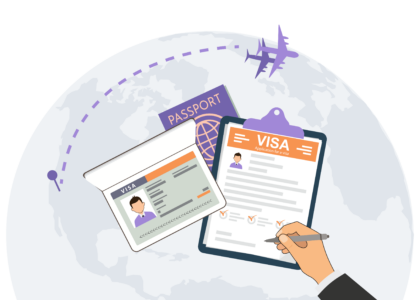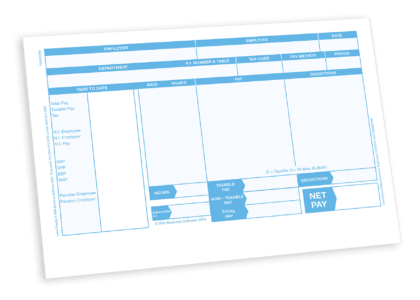Laws and regulations want to perceive inventions gradually due to their subject matter. Firstly, the invention must be a service invention in Turkey. According to the definition, a service invention in Turkey is an invention made by an employee in an enterprise (or public administration) as a result of his/her obligatory activity or within the fields in which the workplace operates, largely based on the supervision and work of the enterprise (or public administration) during the employment relationship.
The Regulation has found it necessary to define the concept of employee invention separately by starting from the concept of service invention and has accepted service inventions or free inventions made by the employee, which can be protected by patent or utility model, as employee inventions.
Accordingly, in order for an invention to be a service invention in Turkey and thus fall within the scope of the law and regulations, this invention must be;
– Realisation by the employee,
– The employee realises the invention as part of his/her obligatory activity or
– The realisation of the workplace within the areas in which it operates, largely based on the experience and work of the enterprise,
– In any case, it must arise within the labour relationship.
Additionally, as per the following provisions, in order for a service invention to be evaluated in accordance with the provisions of the regulation, it must be protectable by patent or utility model.
In other words, firstly, a service invention in Turkey that fullfils certain conditions must arise and if this invention can be protected by patent or utility model, it is evaluated within the scope of the relevant articles of the law and the regulation.
As per the same provision, free invention refers to inventions other than service inventions and inventions made in higher education institutions.
In Article 20 of the Regulation, the groups to which the service invention belongs are determined. These groups function in determining the price for service invention.
According to the regulation, the service invention in Turkey is divided into three groups as follows according to the duty of the inventor employee in the enterprise, the contribution of the enterprise to the realization of the service invention and the situation in which the employee realises the service invention:
– Group 1: Inventions where the employee undertakes a task on his/her own in matters that do not directly fall within the field of duty and where the enterprise does not contribute to the realisation of the invention.
– Group 2: Inventions which are not directly caused by the assignment, but which are realized to meet the needs or solve the problems identified by the enterprise or in which the enterprise contributes to the realization of the invention.
– Group 3: Inventions where the assignment is directly caused by the assignment and where there is a full contribution of the enterprise to the realisation of the invention.
In these determinations, the contribution of the enterprise is accepted as the technical tools and equipment support, energy, raw materials and tools and devices of the enterprise that have contributed significantly to the realization of the invention.
Additionally, the general expenses incurred by the inventor for his/her own labour force, researches, labouratory facilities and devices, independent of the invention, shall not be considered as technical tools and equipment in this sense.
In order to claim rights on the employee invention, the situation must first be notified. The issues regarding notification are regulated in Article 114 of the Law and Article 5 of the Regulation. Accordingly;
– When an employee makes a service invention in Turkey, he/she is obliged to notify the employer in writing and without delay. This notification shall be made to the unit authority designated by the employer or, if no such authorisation has been made, to the unit authority of the employee who made the invention, if any, according to the procedures and principles determined by the employer regarding the notification. If the invention is made by more than one employee, it is also possible to make this notification together.
– The employer is obliged to record this notification and to notify the person or persons notified of the date of receipt of the notification without delay and in writing.
– If the notification is incomplete, the employer is obliged to notify the employee to remedy the deficiencies within two months from the date of receipt of the notification. Otherwise, the notification will be deemed to have been duly made. The employer must assist the employee in correcting the deficiencies if necessary. If the employee fails to remedy the deficiencies within one month, a proper invention notification will be deemed not to have been duly made.
– If the employee fails to fulfil the notification obligation according to these principles and therefore damages arise against the employer, the employer is held responsible for these damages. Additionally, in the event that a patent application is filed or a patent is obtained for a service invention without complying with the aforementioned notification obligation, a lawsuit may be filed against the patent applicant or the patentee in accordance with Articles 110 and 111 of the law. The aforementioned lawsuits are related to the right ownership in the patent application, the usurpation of the patent and the termination of the usurpation.
– Additionally, the employee has the obligation to keep the service invention in Turkey confidential unless it qualifies as a free invention.
The issues that should be included in the notification are stated as follows:
– The technical problem, solution and how the service invention in Turkey is realized should be explained in the notification. Other information and documents deemed necessary for a better explanation of the invention and a picture of the invention shall be attached to the notification.
– Again, in the notification, the employee is obliged to specify the written and verbal instructions given to him/her regarding his/her work, the business experience and studies he/she has benefited from, other employees who contributed to the realisation of the invention, if any, the type and scope of the contributions of these employees, as well as the contribution shares of himself/herself and other employees in the invention.
The right ownership of the employer on the service invention in Turkey can be realized with a full or partial claim according to Article 115 of the Law and Article 6 of the Regulation. The employer is required to submit this request to the employee in writing and within four months from the date of receipt of the duly made notification of the service invention.
According to Article 115 of the Law and Article 7 of the Regulation, in case of a full claim, all rights on the invention will pass to the employer as of the date the notification of the claim reaches the employee. In this case, it is possible for the employee to demand a fee from the employer in return for the utilisation of the invention. Additionally, in this case, the employer must also give an incentive award apart from the aforementioned price, without prejudice to the other rights of the inventor. Incentive awards will not be given to employees working in public institutions and organisations. The incentive award must be paid to the employee within two months at the latest from the date of receipt of the formal conformity notification to the employer regarding the application to be made to the Turkish Patent and Trademark Office in the context of the claim. The incentive award shall not be less than the net minimum wage. If the invention is realised by more than one employee, the incentive award will be shared in proportion to their contributions.
In addition to the aforementioned Article 115 of the Law, the issues regarding the partial right claim are also regulated in Article 8 of the Regulation. Accordingly, it is also possible for the employer to claim a partial right to use the invention in relation to the service invention in Turkey. In this case, the service invention will qualify as a free invention. It is also possible for the employer to use the invention based on the partial right.
If the employer uses the invention on this basis, the employee has the right to demand compensation from the employer in return for the benefit of the invention. In this way, if the employer’s use of the invention makes it significantly difficult for the employee to make use of the invention, the employee may demand full rights from the employer or request the employer to waive the right of use based on the partial right. If the employer does not respond within two months after receiving the employee’s notification regarding this request, the employer’s right to use the invention based on partial right will end.
It is necessary to act in accordance with Article 116 of the law regarding the employer’s obligation to file a patent application in line with the full right request. Accordingly, the employer is obliged to make the first application to the Institution (Turkish Patent and Trademark Office) in order to grant a patent if the employer has made a full right claim for the service invention notified to him.
However, the employer may refrain from filing a patent application if business interests require it. In the event of refraining from filing an application, except in cases where the service invention qualifies as a free invention, the employee consents not to file an application for the invention or the protection of business secrets requires not filing an application, the possible economic losses against the employee arising from not obtaining a patent will be taken into consideration in the calculation of the price that the employer should pay for the invention.
In accordance with the provision of Article 116, it is accepted that the employer’s obligation to make the first application to the Institution for the service invention in Turkey will be cancelled in the following cases:
– The service invention in Turkey becomes a free invention,
– The employee’s consent not to file an application for his/her invention,
– The realisation of at least one of the situations where the protection of business secrets requires not to make an application.
Apart from these, if the employer does not make an application for the service invention for which it has made a full claim and does not make the application within the period to be determined by the employee, the invention will qualify as a free invention, and if the service invention qualifies as a free invention, the employee will have the right to apply personally.
Regarding the use of the invention in a foreign country, the following regulations are explained in Article 116:
– If the employer has made a full claim for the service invention in Turkey, the employer may apply for the protection of the invention in a foreign country.
– The employer, upon the request of the employee, is obliged to release the invention for foreign countries where he does not want to obtain a patent and to provide the employee with the opportunity to apply for a patent in these countries. The release of the invention shall be made within a reasonable period of time in order not to exceed the priority right period.
– When releasing the invention in order to enable the employee to obtain a patent in foreign countries, the employer has the right to reserve a non-exclusive right to use the invention in those countries for an appropriate remuneration, and to demand that his interests arising from this reserved right are not harmed.
When we return to Article 115 of the Law and Article 9 of the Regulation on the concept of right on service invention, which are independent from the examination of Article 116 on filing an application, it is necessary to take into account the following regulations regarding the right claim and the corresponding fee.
– The disposals made by the employee on the invention before the employer’s claim on the service invention in Turkey shall be deemed invalid against the employer to the extent that they violate the rights of the employer.
– Unless the employer claims a full right, the employer is obliged to keep the information regarding the invention notified to him confidential for the continuation of his legitimate interests.
– In the calculation of the fee, the economic evaluability of the service invention, the employee’s duty in the enterprise and the share of the enterprise in the realisation of the invention are also taken into consideration.
– After the employer makes a claim regarding the service invention, the employer may not avoid the payment of the remuneration by claiming that the invention is not worthy of protection. However, if the court accepts the claim as a result of the lawsuit filed on the grounds that the invention is not protectable, or if the Board decides that the invention is not protectable, the employee will not be able to claim compensation.
– Following the employer’s partial or full claim for the service invention, the remuneration and payment method will be determined by the provisions of the contract or a similar legal relationship signed between the employer and the employee. If the service invention in Turkey is realized by more than one employee, the remuneration and payment method shall be determined separately for each of them in accordance with the above sentence.
– The employee shall be able to dispose of the service invention in Turkey, which has acquired the characteristics of a free invention, as he wishes, without being subject to the limitations under the heading C. Free inventions below.





